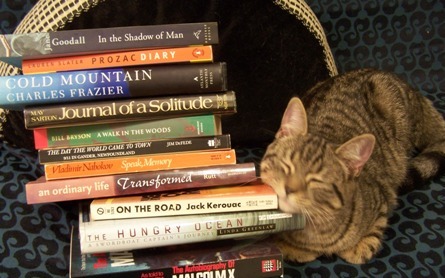 My Rosie the Riveter action figure arrived in the mail today. I already have a smaller Rosie, equipped with a lunch box and drill. But the Rosie I received today is a 9" action figure with blue overalls, a red bandanna, and gloves!
My Rosie the Riveter action figure arrived in the mail today. I already have a smaller Rosie, equipped with a lunch box and drill. But the Rosie I received today is a 9" action figure with blue overalls, a red bandanna, and gloves!For those of you who may not know, Rosie the Riveter is an icon of the WWII era. She represents the thousands of women who went to work in shipyards, aircraft assembly lines, and weapons facilities while 'the boys' were away at war.
The icon of Rosie the Riveter and the "We Can Do It" posters of the time helped spur the women's
 movement decades later. After the war, the women were removed from their jobs so the men could return to work. Not surprisingly women received lesser pay for the same jobs and skills as men. These injustices precipitated the first stirrings of the Women's Rights Movement in the 60's and 70's.
movement decades later. After the war, the women were removed from their jobs so the men could return to work. Not surprisingly women received lesser pay for the same jobs and skills as men. These injustices precipitated the first stirrings of the Women's Rights Movement in the 60's and 70's.The Rosie I received today is part of a series of dolls made by the Minnesota Historical Society called "Eleanor's Girls," to pay tribute to the valor of women who served in varied capacities during WWII. I also bought a WASPS (Women's Air Force Service Pilots) doll. Eleanor Roosevelt, of course, was a champion of the rights of many, including women. She also was a model herself of women serving in nontraditional roles for the time.
Despite all the history and honor, I bought the dolls mainly because they are truly unique. I have never seen such dykie dolls in all my life! They even beat the bastardized scooter barbie dolls I made last year! Look at the pilot's boots!



























